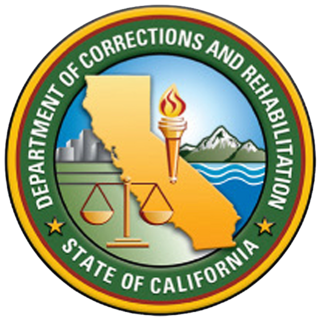Related Research Articles

In the U.S. state of California, capital punishment is a legal penalty. However it is not allowed to be carried out as of March 2019, because executions were halted by an official moratorium ordered by Governor Gavin Newsom. Prior to the moratorium, executions were frozen by a federal court order since 2006, and the litigation resulting in the court order has been on hold since the promulgation of the moratorium. Thus, there will be a court-ordered moratorium on executions after the termination of Newsom's moratorium if capital punishment remains a legal penalty in California by then.
In law, receivership is a situation in which an institution or enterprise is held by a receiver—a person "placed in the custodial responsibility for the property of others, including tangible and intangible assets and rights"—especially in cases where a company cannot meet its financial obligations and is said to be insolvent. The receivership remedy is an equitable remedy that emerged in the English chancery courts, where receivers were appointed to protect real property. Receiverships are also a remedy of last resort in litigation involving the conduct of executive agencies that fail to comply with constitutional or statutory obligations to populations that rely on those agencies for their basic human rights.

The California Department of Corrections and Rehabilitation (CDCR) is the penal law enforcement agency of the government of California responsible for the operation of the California state prison and parole systems. Its headquarters are in Sacramento.

The California Division of Juvenile Justice (DJJ), previously known as the California Youth Authority (CYA), is a division of the California Department of Corrections and Rehabilitation that provides education, training, and treatment services for California's most serious youth offenders. These youths are committed by the juvenile and criminal courts to DJJ's eleven correctional facilities, four conservation camps and two residential drug treatment programs. The DJJ provides services to juvenile offenders, ranging in age from twelve to 25, in facilities and on parole, and works closely with law enforcement, the courts, district attorneys, public defenders, probation offices and other public and private agencies involved with the problems of youth. The DJJ is undergoing reorganization as required by a court agreement and the California State Legislature after widespread criticisms of conditions at its youth prisons. The agency's headquarters are in Sacramento, California.

Valley State Prison (VSP), previously the Valley State Prison for Women (VSPW), is a state prison in Chowchilla, California. It is across the road from Central California Women's Facility. It was formerly a prison for women.

Gates v. Collier, 501 F.2d 1291, was a landmark decision of the Fifth Circuit Court of Appeals that brought an end to the trusty system as well as flagrant inmate abuse at Mississippi State Penitentiary, also known as Parchman Farm, in Sunflower County, Mississippi. It was the first case in a body of law developed in the Fifth Circuit Court of Appeals holding that a variety of forms of corporal punishment against prisoners constituted cruel and unusual punishment and a violation of Eighth Amendment rights. This case was also the first broad-scale intervention by a court in the supervision of prison practices.

California State Prison, Solano (SOL) is a male-only state prison located in the city of Vacaville, Solano County, California, adjacent to the California Medical Facility. The facility is also referenced as Solano State Prison, CSP-Solano, and CSP-SOL.

The California State Prison System is a system of prisons, fire camps, contract beds, reentry programs, and other special programs administered by the California Department of Corrections and Rehabilitation (CDCR) Division of Adult Institutions to incarcerate approximately 117,000 people as of April 2020. CDCR owns and operates 34 prisons throughout the state and operates 1 prison leased from a private company.
Farmer v. Brennan, 511 U.S. 825 (1994), was a case in which the Supreme Court of the United States ruled that a prison official's "deliberate indifference" to a substantial risk of serious harm to an inmate violates the cruel and unusual punishment clause of the Eighth Amendment. Farmer built on two previous Supreme Court decisions addressing prison conditions, Estelle v. Gamble and Wilson v. Seiter. The decision marked the first time the Supreme Court directly addressed sexual assault in prisons.

The Wisconsin circuit courts are the general trial courts in the state of Wisconsin. There are currently 69 circuits in the state, divided into 10 judicial administrative districts. Circuit court judges hear and decide both civil and criminal cases. Each of the 249 circuit court judges are elected and serve six-year terms.

The American Foundation for Equal Rights (AFER) was a nonprofit organization active in the United States from 2009 through 2015. The organization was established to support the plaintiffs in Hollingsworth v. Perry, a federal lawsuit challenging California's Proposition 8 under the Due Process and Equal Protection Clauses of the Fourteenth Amendment to the United States Constitution. AFER retained former United States Solicitor General Theodore B. Olson and David Boies to lead the legal team representing the plaintiffs challenging Proposition 8.
Coleman v. Schwarzenegger, docket no. 2:90-cv-00520-LKK-JFM, is a federal class action civil rights lawsuit under the Civil Rights Act of 1871, Eighth and Fourteenth Amendment to the United States Constitution, and the Rehabilitation Act of 1973 alleging unconstitutional mental health care by the California Department of Corrections and Rehabilitation (CDCR).
Lantz v. Coleman is a Connecticut superior court case that addresses the constitutionality of forcibly feeding prison inmates on hunger strikes. The court ruled in favor of force feeding.
Marsy's Law, the California Victims' Bill of Rights Act of 2008, enacted by voters as Proposition 9 through the initiative process in the November 2008 general election, is a controversial amendment to the state's constitution and certain penal code sections. The act protects and expands the legal rights of victims of crime to include 17 rights in the judicial process, including the right to legal standing, protection from the defendant, notification of all court proceedings, and restitution, as well as granting parole boards far greater powers to deny inmates parole. Critics allege that the law unconstitutionally restricts defendant's rights by allowing prosecutors to withhold exculpatory evidence under certain circumstances, and harms victims by restricting their rights to discovery, depositions, and interviews. Passage of this law in California led to the passage of similar laws in Florida, Georgia, Illinois, Kentucky, Nevada, North Carolina, Oklahoma, Ohio and Wisconsin, and efforts to pass similar laws in Hawaii, Iowa, Montana, Idaho, South Dakota, and Pennsylvania. In November 2017, Marsy's Law was found to be unconstitutional and void in its entirety by the Supreme Court of Montana for violating that state's procedure for amending the Montana Constitution. The Pennsylvania Supreme Court reached the same conclusion as Montana under its own state constitution in 2021.
Brown v. Plata, 563 U.S. 493 (2011), was a decision by the Supreme Court of the United States holding that a court-mandated population limit was necessary to remedy a violation of prisoners’ Eighth Amendment constitutional rights. Justice Kennedy filed the majority opinion of the 5 to 4 decision, affirming a decision by a three judge panel of the United States District Court for the Eastern and Northern Districts of California which had ordered California to reduce its prison population to 137.5% of design capacity within two years.

Jon Steven Tigar is an American lawyer and jurist serving as a U.S. district judge of the United States District Court for the Northern District of California. He was previously a California state court judge on the Alameda County Superior Court from 2002 to 2013.
California's Public Safety Realignment initiative, officially known as "Realignment", was a combination of two bills passed by the state of California, with the ultimate goal of reducing its state prison population by shifting much of that population to county jails. It was the result of a court-order in response to shortfalls in medical and mental health care for the state's prison population.

The 2013 California prisoner hunger strike started on July 8, 2013 involving over 29,000 inmates in protest of the state's use of solitary confinement practices and ended on September 5, 2013. The hunger strike was organized by inmates in long term solitary in the Security Housing Unit (SHU) at Pelican Bay State Prison in protest of inmates housed there that were in solitary confinement indefinitely for having ties to gangs. Another hunger strike that added to the movement started the week before in High Desert State Prison. The focus of the High Desert State Prison hunger strike was to demand cleaner facilities, better food and better access to the library.

California Health Care Facility (CHCF) is a state prison for incarcerated patients with long-term medical needs or acute mental health needs. The prison is located in Stockton, California, on the site of the former Karl Holton Youth Correctional Facility. Incarcerated people of all security levels are treated at the facility.

Incarceration in California spans federal, state, county, and city governance, with approximately 200,000 people in confinement at any given time. An additional 55,000 people are on parole.
References
- 1 2 3 4 5 6 7 8 9 10 Order for population reduction plan, three-judge court convened by the Chief Judge of the United States Court of Appeals for the Ninth Circuit hearing Plata v. Schwarzenegger and Coleman v. Schwarzenegger
- 1 2 Gullo, Karen. "California Must Reduce Inmate Population, U.S. Judges Rule ", Bloomberg News , February 10, 2009. Accessed October 14, 2009.
- 1 2 Jurisdictional statement, California Attorney General et al.
- ↑ Yi, Matthew; Egelko, Bob (September 19, 2009), State fails federal demand to cut prisoners, San Francisco Chronicle, p. C-1, retrieved 2009-10-23
- ↑ Egelko, Bob (October 22, 2009), Court, governor dig in heels on prison crowding, San Francisco Chronicle, p. A-11, retrieved 2009-10-23
- ↑ Rothfeld, Michael (October 22, 2009), "Judges reject California plan to cut prison crowding", Los Angeles Times , p. A-11, retrieved 2009-10-23
- ↑ Walsh, Denny (October 22, 2009), Federal judges reject plan to cut California prison crowding, Sacramento Bee, p. A4, archived from the original on October 25, 2009, retrieved 2009-10-23
- ↑ Order to reduce prison population Archived 2010-12-18 at the Wayback Machine , three-judge court, convened by the Chief Judge of the United States Court of Appeals for the Ninth Circuit hearing Plata v. Schwarzenegger and Coleman v. Schwarzenegger
- ↑ Orders in Pending Cases, Monday, June 14, 2010 (PDF), June 14, 2010
- ↑ , Oyez
- ↑ Walsh, Denny (March 14, 2009), California to push for dismissal of feds' prison health czar, Sacramento Bee, p. A3, retrieved 2009-10-14[ permanent dead link ]